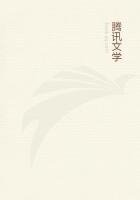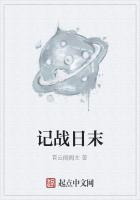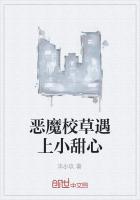There is one method of preserving books, which, alas, only tempts the borrower, the stealer, the rat, and the book-worm; but which is absolutely necessary as a defence against dust and neglect. This is binding. The bookbinder's art too often destroys books when the artist is careless, but it is the only mode of preventing our volumes from falling to pieces, and from being some day disregarded as waste-paper. A well-bound book, especially a book from a famous collection, has its price, even if its literary contents be of trifling value. A leather coat fashioned by Derome, or Le Gascon, or Duseuil, will win respect and careful handling for one specimen of an edition whereof all the others have perished. Nothing is so slatternly as the aspect of a book merely stitched, in the French fashion, when the threads begin to stretch, and the paper covers to curl and be torn. Worse consequences follow, whole sheets are lost, the volume becomes worthless, and the owner must often be at the expense of purchasing another copy, if he can, for the edition may now be out of print. Thus binding of some sort not only adds a grace to the library, presenting to the eye the cheerful gilded rows of our volumes, but is a positive economy. In the case of our cloth-covered English works, the need of binding is not so immediately obvious. But our publishers have a taste for clothing their editions in tender tones of colour, stamped, often, with landscapes printed in gold, in white, or what not. Covers like this, may or may not please the eye while they are new and clean, but they soon become dirty and hideous. When a book is covered in cloth of a good dark tint it may be allowed to remain unbound, but the primrose and lilac hues soon call out for the aid of the binder.
Much has been written of late about book-binding. In a later part of this manual we shall have something to say about historical examples of the art, and the performances of the great masters. At present one must begin by giving the practical rule, that a book should be bound in harmony with its character and its value. The bibliophile, if he could give the rein to his passions, would bind every book he cares to possess in a full coat of morocco, or (if it did not age so fast) of Russia leather. But to do this is beyond the power of most of us. Only works of great rarity or value should be full bound in morocco. If we have the luck to light on a Shakespeare quarto, on some masterpiece of Aldus Manutius, by all means let us entrust it to the most competent binder, and instruct him to do justice to the volume. Let old English books, as More's "Utopia," have a cover of stamped and blazoned calf. Let the binder clothe an early Rabelais or Marot in the style favoured by Grolier, in leather tooled with geometrical patterns. Let a Moliere or Corneille be bound in the graceful contemporary style of Le Gascon, where the lace-like pattern of the gilding resembles the Venetian point-lace, for which La Fontaine liked to ruin himself. Let a binding, a la fanfare, in the style of Thouvenin, denote a novelist of the last century, let panelled Russia leather array a folio of Shakespeare, and let English works of a hundred years ago be clothed in the sturdy fashion of Roger Payne. Again, the bibliophile may prefer to have the leather stamped with his arms and crest, like de Thou, Henri III., D'Hoym, Madame du Barry, and most of the collectors of the seventeenth and eighteenth centuries. Yet there are books of great price which one would hesitate to bind in new covers. An Aldine or an Elzevir, in its old vellum or paper wrapper, with uncut leaves, should be left just as it came from the presses of the great printers. In this condition it is a far more interesting relic. But a morocco case may be made for the book, and lettered properly on the back, so that the volume, though really unbound, may take its place with the bound books on the shelves. Acopy of any of Shelley's poems, in the original wrappers, should Iventure to think be treated thus, and so should the original editions of Keats's and of Mr. Tennyson's works. A collector, who is also an author, will perhaps like to have copies of his own works in morocco, for their coats will give them a chance of surviving the storms of time. But most other books, not of the highest rarity and interest, will be sufficiently clothed in half-bindings, that is, with leather backs and corners, while the rest of the cover is of cloth or paper, or whatever other substance seems most appropriate.
An Oxford tutor used to give half-binding as an example of what Aristotle calls [Greek text], or "shabbiness," and when we recommend such coverings for books it is as a counsel of expediency, not of perfection. But we cannot all be millionaires; and, let it be remembered, the really wise ******* will never be extravagant, nor let his taste lead him into "the ignoble melancholy of pecuniary embarrassment." Let the example of Charles Nodier be our warning;nay, let us remember that while Nodier could get out of debt by selling his collection, OURS will probably not fetch anything like what we gave for it. In half-bindings there is a good deal of room for the exercise of the collector's taste. M. Octave Uzanne, in a tract called "Les Caprices d'un Bibliophile," gives some hints on this topic, which may be taken or let alone. M. Uzanne has noticed the monotony, and the want of meaning and suggestion in ordinary half-bindings. The paper or cloth which covers the greater part of the surface of half-bound books is usually inartistic and even ugly.
He proposes to use old scraps of brocade, embroidery, Venice velvet, or what not; and doubtless a covering made of some dead fair lady's train goes well with a romance by Crebillon, and engravings by Marillier. "Voici un cartonnage Pompadour de notre invention," says M. Uzanne, with pride; but he observes that it needs a strong will to make a bookbinder execute such orders. For another class of books, which our honest English shelves reject with disgust, M.

